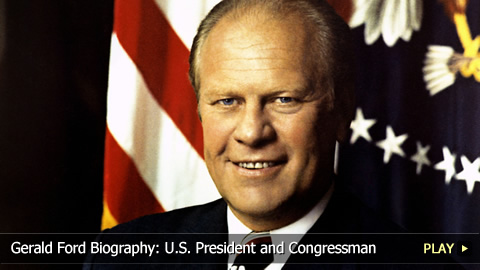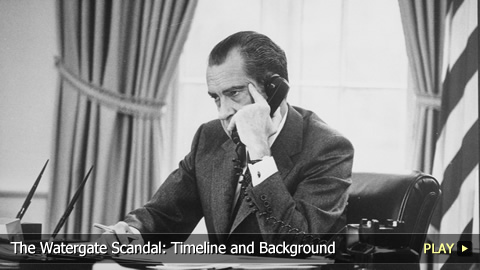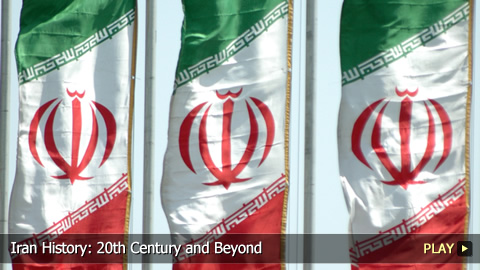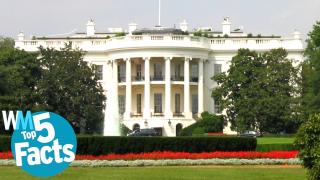Biography of Jimmy Carter: From Peanut Farmer to President

Education
Sex Education Cast: Where Are They Now?
James Earl Carter, Jr. was born October 1st, 1924 in Plains, Georgia. He excelled at school, and studied at Georgia Southwestern College and the Georgia Institute of Technology before being admitted to the United States Naval Academy in 1943. Three years later, he graduated with a bachelor’s degree in science.
Naval Career and Peanut Farming Business
Top 10 Best Naval Combat Games
Also in 1946, he married Rosalyn Smith and began his naval career. In 1953 he was forced to return home due to his father’s death, and at that point he took over the family’s peanut farm business. He subsequently expanded it to a booming operation.
Early Political Efforts and Governorship
Top 10 Times Celebs Celebrated Too Early at Award Shows
Carter and his family became important pillars of the community, and Jimmy himself began serving on various boards around the county. He parlayed these experiences into a successful run at the Georgia State Senate in 1962 as a Democrat. He was reelected two years later, and attempted to run for Governor in 1966, but lost. However, he ran a successful campaign in the next election, and in January 1971 he was sworn in as the Governor of Georgia.
A Symbol of Good Government
Gerald Ford Biography: U.S. President and Congressman
During his term as Governor, Carter began allowing African Americans and women to work in government offices, and reorganized the state government. He enjoyed an increase in national visibility when Time Magazine chose him as a representation of good government and positive developments in the American South.
Presidential Run
U.S. Presidential Election Process: Explained
In 1974, Carter announced his intention to run for the Democratic presidential nomination. He was a tireless campaigner, and managed to charm an expansive support base. He depicted himself as a Washington outsider, which was especially important in the wake of the Watergate scandal. Eventually, he won the nomination, and fought another fierce campaign with his running mate Walter Mondale against incumbent Republican president Gerald Ford.
Reputation as a Regular Guy
Top 10 Best Taylor Swift Reputation Era Performances
Finally, on November 2nd, 1976 Jimmy Carter was elected the 39th President of the United States with 297 electoral votes, to Ford’s 240. As president, Carter used his casual style in both speech and dress to promote his reputation as a regular guy.
Presidential Efforts at Home
20 Questions That Will Determine the 2024 US Presidential Election
He also initiated a number of programs to reform social, administrative and economic policies; however, these were often opposed by Congress. Eventually, his popularity decreased as he was unable to realize many of his ideas.
Scandal
The Watergate Scandal: Timeline and Background
Carter’s reputation declined further due to scandals. His good friend and cabinet member Bert Lance was accused of financial misdeeds, while his brother was charged with illegally trading influence with the Libyan government. Neither was officially found guilty, but Carter’s image suffered by association.
International Profile
2014 Corvette Stingray at the NA International Auto Show
Meanwhile, his international efforts were significant: he obtained the Panama Canal treaties, as well as a peace agreement between Egypt and Israel called the Camp David Accord. Carter also established relations with the People’s Republic of China, and negotiated a treaty with the Soviet Union that limited nuclear manufacturing. However, after the Soviets invaded Afghanistan in 1979, that treaty was never ratified and Carter decided on a controversial U.S. boycott of 1980’s Moscow Olympics.
Iran Hostage Crisis and Defeat by Reagan
Iran History: 20th Century and Beyond
1979 also saw diplomats taken hostage by Iranian students at the U.S. embassy in Tehran. Carter negotiated furiously for their release, but was unable to do so before the election. This, coupled with an uncertain economy at home, helped lead to Carter’s overwhelming defeat by Ronald Reagan when he ran for reelection in 1980. In fact, he was the first president not to win a second term since 1932 due to his depiction as an ineffectual and indecisive leader.
After the White House
Top 5 Fascinating White House Facts
Following his presidency, he returned to his farm, wrote many books, taught university, and acted as a diplomat during numerous international conflicts. He also established the Carter Center, and in 2002 these human rights efforts won him the Nobel Peace Prize.
Legacy
Top 10 Scariest Kaiju On Monarch Legacy of Monsters
Some have depicted Carter’s presidency as a failed one. However, his reputation as a humanitarian and as a peace-keeper has proven Jimmy Carter to be immensely successful.


 0
0
 1
1
 report
report












